Lessons in Hate:
Combatting Antisemitism
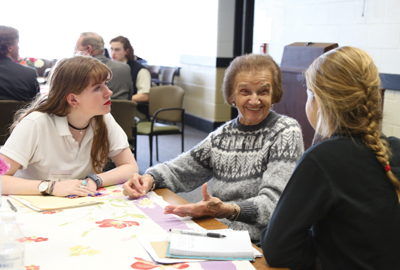
Ellie Hollin, a senior at The John Carroll School, knew a lot about the Holocaust from her social studies classes and a class trip to the United States Holocaust Memorial Museum. But nothing left an impression on her quite like hearing directly from survivors at her school’s annual Lessons of the Shoah (Holocaust) program, held each year around Holocaust Remembrance Day.
The personal accounts from Holocaust survivors and their children made the stories Ellie had heard come to life, and inspired her to be more empathetic.
“Sometimes the sheer number of people dead or who escaped from events like the Holocaust can be difficult to process, but when you put a face to the event, it becomes a lot more personal and touching,” she says. “The program gave me personal knowledge and called for personal responsibility.”
The day also reframed history for her — she was shocked to learn that genocide was still occurring in parts of the world and that it wasn’t a closed chapter of the past.
The program, which brings hundreds of students from all over Maryland to The John Carroll School, a Catholic school in Harford County, and the school’s annual Holocaust Remembrance Day, are just two of the numerous efforts of The Associated: Jewish Federation of Baltimore to spread Holocaust awareness and combat antisemitism.
But on the heels of deadly shootings at synagogues and prominent public displays of antisemitism and white supremacy, from Charlottesville to this year’s attack on the Capitol, the Baltimore Jewish Council (BJC), an agency of The Associated, is elevating the work of fighting antisemitism.
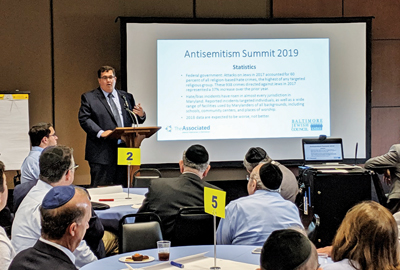
“There have been a number of national incidents that really focused our attention,” says Howard Libit, executive director of the BJC. “But in our day-to-day lives, I regularly hear reports of swastikas found spray-painted on neighborhood signs, or comments made on social media against Jewish leaders or Jewish journalists.”
The Anti-Defamation League, a leading anti-hate organization, recorded 2,107 antisemitic incidents in the United States in 2019, the highest number on record since the organization began tracking such incidents in 1979.
These troubling incidents and statistics, combined with growing gaps in Americans’ knowledge about the Holocaust, inspired the BJC and The Associated to convene a group of Jewish community leaders to form the Baltimore Jewish Community Task Force on Antisemitism.
The recommendations include training for law enforcement, enhanced Holocaust education in schools, interfaith community activities and developing a system for local institutions and community members to report antisemitic incidents.
“We’re not saying we need to start fighting antisemitism now, we’ve always been trying to combat it,” says Emily Goodman, director of Holocaust and countering antisemitism programming at the BJC. “Now it’s becoming more pressing, unfortunately, as we see antisemitism on the rise.”
Goodman is working with The Associated and other community organizations to develop a training curriculum for chief diversity officers at all kinds of institutions — from schools to government agencies to corporations — to help them identify antisemitism and respond to it.
These redoubled efforts build on years of educational and advocacy work from The Associated and its agencies — from lobbying in Annapolis for stronger hate crime laws or more robust Holocaust education requirements to programming for teachers and students.
Two such programs, which date back nearly 20 years, are the summer and winter teachers’ institutes, co-sponsored by the Jewish Museum of Maryland (JMM) and the BJC. The two-day programs allow Maryland teachers to learn best practices for teaching about the Holocaust and genocide while increasing their own knowledge of the Holocaust. Past themes include women and the Holocaust, propaganda, and rescue and resistance.
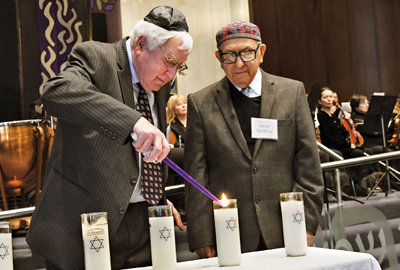
The institutes, which are usually attended by about 40 teachers, include visits to sites such as the Holocaust Museum in Washington, D.C., or the Museum of Jewish Heritage in New York.
Ilene Dackman-Alon, education director at the JMM, says it’s important for teachers to be armed with knowledge to be able to help their students connect with history.
“We need to teach kids how to stand up — there were too many people during the Holocaust that couldn’t stand up,” she said. “Teachers can teach younger children how to be upstanders in a developmentally appropriate way just the same as they can high schoolers.”
Louise Géczy, coordinator of external Holocaust programs at The John Carroll School, is one of the driving forces behind the school’s Lessons of the Shoah program and annual Holocaust Remembrance Day. She worries about what will happen when there are no longer any survivors around to tell their stories.
“I’ve been teaching since the late ’60s, and there’s nothing I’ve ever taught that’s had a greater impact on students than the Holocaust,” she says.
In 2019, the last time both programs were held in-person due to the COVID-19 pandemic, Géczy was able to bring 24 survivors or children of survivors to the school for Holocaust Remembrance Day. She recalls a survivor telling students about hearing his mother being murdered and another showing students the number tattooed on her forearm from Auschwitz.
For Lessons of the Shoah, students attended workshops where they discussed topics such as the psychology of hatred and perpetrators of the Holocaust. The mix of students from public and private schools also get a chance to have lunch with survivors and each other.
“The whole idea is to raise awareness, not just about the Holocaust, but about what happens when hatred and divisiveness are allowed to drive people’s actions, as opposed to finding ways to come together,” she says. “The goal is to convey to students that they can be upstanders.”
Visit baltjc.org to learn more about the programs.
Subscribe to our newsletter
The Associated is a home for everyone in the Baltimore Jewish community. We offer several email lists to help people find a community, engage with their peers and support Jewish journeys around the world.
Join Our Mailing ListAdd Impact to Your Inbox
Sign up for our newsletter
Subscribe to our newsletter
The Associated is a home for everyone in the Baltimore Jewish community. We offer several email lists to help people find a community, engage with their peers and support Jewish journeys around the world.
Join Our Mailing List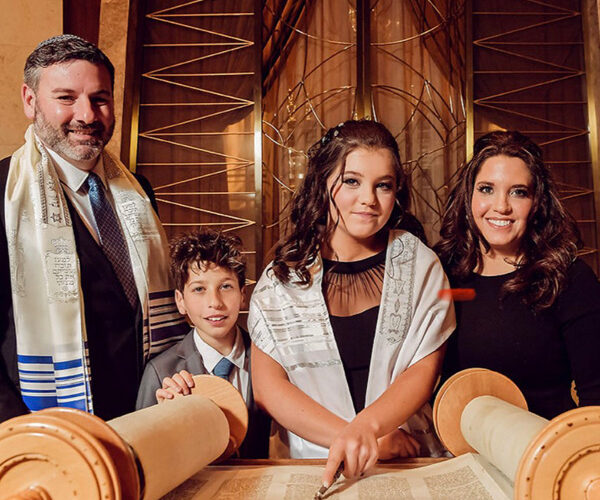
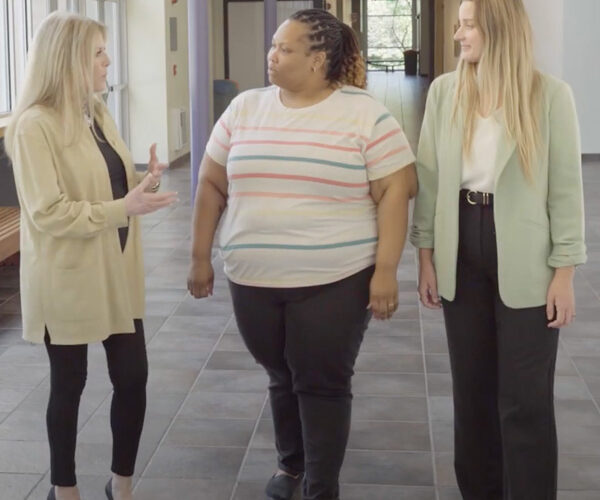
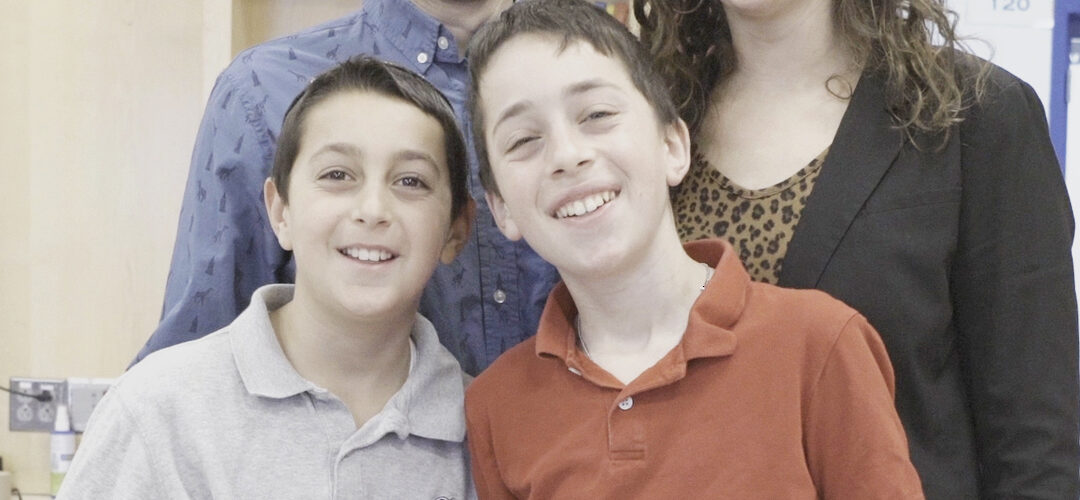
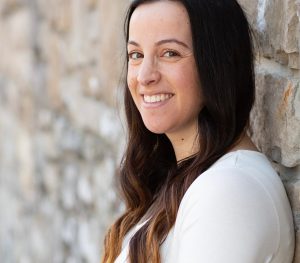
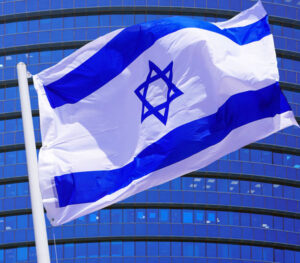
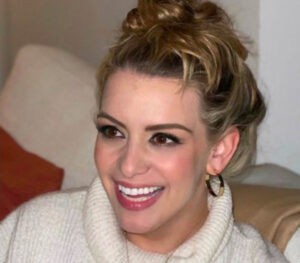
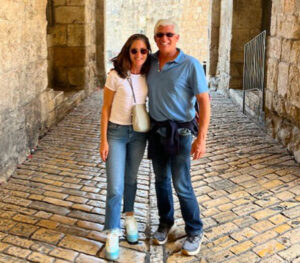
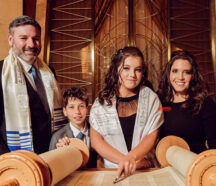
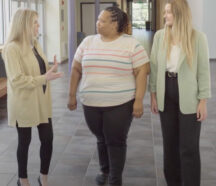
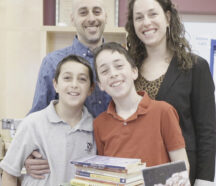
 Please Wait while we loading your video.
Please Wait while we loading your video.